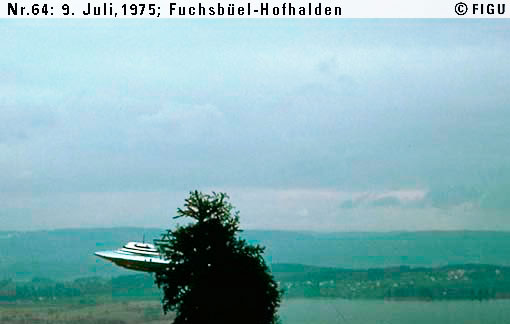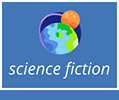1975-03-26 source: Semjase

(Semjase at the 10th contact of Wednesday, March 26, 1975, 3:20 pm; sentences #91-#120)
91. S/he knows the answer to the last questions of the science, the philosophy and also of the questioning human being.
他最终获得了科学、哲学及人类疑问的答案。
92. But to become such a human being in prosperousness, one must seek and find the truth, create knowledge from it, wisdom and love; because the human being is only able to grow spiritually and consciousness-based through truth, knowledge, essence of wisdom and love, wherethrough s/he is liberated from all human weaknesses.
要成为那个有福之人,他必须寻找真理,并从中获得知识、智慧和爱,人只有在真理,知识,智慧和爱的精神中成长,他才能从人性的弱点中解脱出来。
93. S/he is no earlier enlightened and completely liberated than when s/he remains constantly and continuously in thought in the unending creational-spiritual reality.
人只有在思想上持续处于一种【无限造化之灵】的实相之中,才能得到启迪和完全的自由。
94. The spiritual intelligence is enlightened by law-based spiritual principles and is directed toward the creational inner core nature, the absolutely full development, and the power of the creational itself.
精神智慧受到基于法则的精神原则的启发,并指向创造的内核本质、绝对充分的发展以及创造本身的力量。
95. This is in contrast to the human intelligence, because the human material consciousness is generally concerned only with individual things of the material world.
这与人类的智能形成了对比,因为人类的物质意识通常只关注物质世界的个别事物。
96. But this has the consequence that the human being is constrained and hindered in every direction, indeed even captured, oppressed, plagued, and tortured by all possible forms of mishappening, weaknesses, and enslavements of all kinds.
但这导致的结果是,人类在各个方面都受到限制和阻碍,甚至被各种可能的不幸、软弱和奴役所笼罩、压迫、困扰和折磨。
97. Hence, a self-analysis of the individual human being is one of the most essential methods for finding the truth and for going the way of the consciousness-based and spiritual evolution.
所以,一个人的自我分析是寻找真理并走向精神进化之路的必要方式。
98. Thus, it is necessary that the human being continuously checks his/her thoughts and sees what kind they really are.
所以,一个人经常自我反省内心世界并思考自己是个怎么样的人,这是必须的。
99. S/he has to make sure that s/he is ultimately always guided, led and destined by creational-philosophical principles and realities, by creational-natural laws.
他/她必须确保他/她最终总是受到创造哲学原理和现实、创造自然法则的引导和支配。
100. In the human being the constant conscious feeling should reign, that s/he belongs to the creational, with his/her actual spiritual breath, his/her actual spiritual BEING.
人类的内在,常驻着属于创造的持续意识感觉,伴随着他的本性灵性气息,他的本性精神性存在。
101. Consciousness-based it shall be clear to him/her that his/her actual spiritual BEING is inseparably one with the creational, so as to overcome the material outer world in this consciousness.
基于意识,他/她应该清楚地认识到,他/她实际的精神存在与创造物是不可分割的,从而能够在这种意识中克服物质的外部世界。
102. This creational-philosophical truth and cognition should always, first and foremost, control the human thinking, feeling, and acting.
这种创造哲学的真理和认知应该始终首先控制人类的思想、感觉和行为。
103. Because only the one who is one with the spirit can in the long run recognise and also do good, because s/he has the capabilities of the Creation in him/herself.
只有具有灵性的人才可以最终认识到善并行善,因为他内在拥有造物主。
104. Nothing negative in the unending universe can affect and enslave him/her anymore.
无穷无尽的宇宙中,任何负面的东西都无法再影响和奴役他/她。
105. Besides this creational-philosophical consciousness there is still the practical, dynamic, creational one; that is, the mystical consciousness, which consists of the perception of the one reality in all things.
除了这种创造哲学意识之外,还有实践的、动态的、创造的意识;也就是神秘意识,它由对万物中唯一实相的感知组成。
106. May the human being therefore be a practical philosopher and mystic and perceive the reality in the changeable passing forms.
因此,愿人类成为一个务实的哲学家和神秘主义者,并在不断变化的形式中感知现实。
107. After all, what is a human being?
人究竟是什么?
108. S/he is only a figure and a name.
他只是一个形象和名字。
109. If one takes away the name and the figure, what is still left of him/her?
如果拿掉人的名字和形象,还剩什么呢?
110. There remains the fundamental essence, the existence – the spirit and the overall consciousness-block.
剩下的是最本质的精华,灵和综合意识块的存在。
111. That human being who overlooks this, is pushed away and around by the slightest breeze of the wind, instable, without hope of rescue and always striving to still find a firm hold somewhere, which, however, will never offer itself to him or her unless s/he seeks and finds the fundamental truth.
如果人忽视这些,哪怕是一点微风也能把他吹得无影无踪而找不到依靠,除非他最终找到真理。
112. Thousands of millions of human beings of Earth or other worlds look up to the stars of the firmament without any results or cognitions.
地球或其他世界的亿万人类仰望星空,却没有任何结果或认知。
113. However, those knowledgeable about stars, by looking up to the firmament, discover new worlds and write books about it.
然而,天文学家仰望星空则可以发现新世界并为之写书。
114. But what they see and recognise, others are not able to see and recognise, even if they can look up.
但是他们所看到和认识的东西,别人却看不到和不认识,即使那些人也能够抬头看。
115. Despite their seeing eyes, they are blind.
虽然他们拥有双眼但是确是盲人。
116. The situation is similar with the ordinary and simply consciousness-based simple-minded, with the consciousness-based unconscious human being:
情况与普通和仅基于意识的心智简单的人类类似,与基于意识的无意识人类一样。
117. The human being, who truthfully lives in accordance with the spiritual laws of the Creation, sees and recognises the creational all around in every life-form, in every thing, in every thought and action, in every human being, in all the activity of the nature and also in all imaginable circumstances and occurrences.
只有真正按造物法则生活的人,才可以在到处发现与认知到【造化之物】;也就是在所有的生命之中、在所有事物之中、在所有人的思想与行为之中、在一切大自然之中以及在所有可想到的环境之中,都将发现到。
118. The ordinary human being, however, who is consciousness-based simple-minded and impaired by religions or other unreal teachings, is neither able to see nor to hear, nor to recognise even just one iota of the truth.
然而,普通人由于意识简单,且受到宗教或其他不真实教义的影响,既看不到,也听不到,甚至无法认识到哪怕一丁点的真理。
119. His life is unconscious, but all the more pressed into human-material paths.
他的生命不再是灵性的,而被烙上各种人类物质方式的烙印。
120. As a result s/he is blind, deaf and unknowing.
因此,他又瞎又聋又无知。
